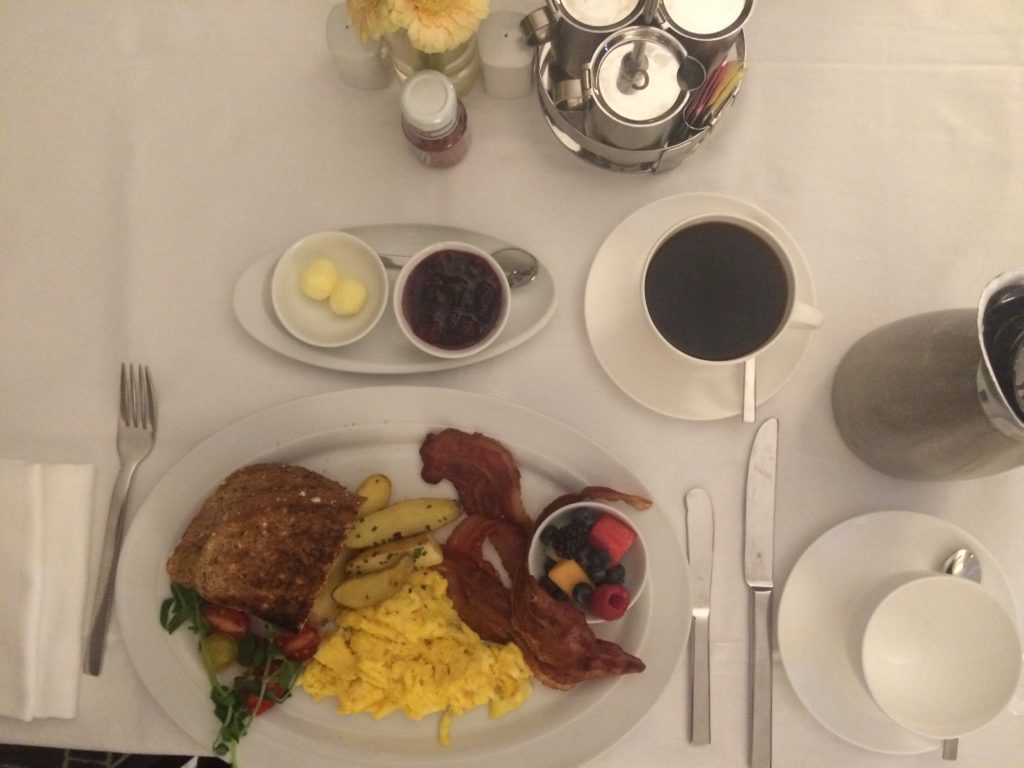There are tons of articles and guides out there detailing how to overcome writers’ block, how to boost your motivation to write, and how to increase your writing productivity when you’re in a slump. Feeling demotivated, despondent, deflated? No worries, the internet’s got you covered.
But what about those times when you AREN’T suffering from low motivation or fatigue? What about those times when you’re positively bouncing off the walls with manic artistic energy?
No one ever writes about those times. But, for me, the periods of intense ups can actually be harder and more confusing to deal with than those depressing downs.
When you’re down, you just need to plod along as best you can. But when you’re UP, you have so much energy that you can barely focus.
This article is for those times. Should you be lucky enough to find yourself overflowing with creative drive but unsure where to channel it, perhaps you can commit to one of the 6 following exciting goals for energetic writers.
1 – Bradbury Beast Mode Productivity
So you’ve tackled the Bradbury Trio and you managed to read 1 short story, 1 poem, and 1 essay every night for 1,000 nights.
But what next?
Well, in the same lecture that Ray Bradbury put forth his reading program, he also mused on what he could achieve if only he had the energy of a young man:
If I had that energy, I could write a poem a day, a short story a week, a novel a month.
When I heard Bradbury say that, it really spoke to me.
Imagine – even if it’s difficult at first – the amount of creativity, joy, and pure damn fun you would have if you spent the next year following this writing program?
Write:
- A poem a day
- A short story a week
- And a novel a month
The momentum would build up to the point at which you could probably do EVEN MORE than that. Or maybe you burn out. But that doesn’t matter. Who wouldn’t want to be a beautiful firework?
At the end of the year, you’d have 365 poems, 52 short stories, and 12 novels.
Following Pareto’s Principle, 80% of them would be crap.
But that still leaves…
- 73 pretty good poems
- 10 pretty good short stories
- 2 pretty good novels
And whittling it down some more, you might just have…
- 15 great poems
- 2 great short stories
- And a pretty great novel
Feeling like entering the Bradbury Beast Mode? You could even put it all up online. How awesome would that website be? Chronicle your short stories, poems, and novels for the next year and show the world how prolific you’re becoming. I’d read that!
2 – Quaff A Literary Nightcap (And Drink With Breakfast)
I got this neat little technique a few years back (and used it on my first novel) from James Scott Bell’s How To Make A Living As A Writer.
James has a technique called “the 200-word nightcap”.
In his own words:
Before you retire for the evening, write 200 more words. You may be tired, you may be groggy, but 200 words is not that hard to do. Further, writing just before bed gets your subconscious working while you sleep.
I can attest to the subtle power of this technique.
Adding an extra 200 words on top of your daily word count really adds up over time. And, like James says, it’s not too hard to do, even if you’re feeling knackered.
James recommends pairing this with another technique he calls “the nifty 350”, which basically involves hitting 350 words immediately after waking up before you start checking your social media bullshit and all that.

Breakfast of champions = 350 words, black coffee, eggs, cocaine, bacon.
These techniques pair very well together because your mind is still piecing together the 200 words from the night before and your unconscious mind has likely cooked up a few treats that make you eager to write.
3 – Rattle Your Writerly Cage
You know the old adage: familiarity breeds contempt.
Sometimes we just can’t face another day of looking at the same stupid manuscript.
We’re versatile goddamnit!
We want to write plays and songs and dirty ditties…
Well, why don’t we?
When I had just finished my first novel, the prospect of starting another one felt worse than the prospect of becoming intimate with a saguaro cactus while a crowd of extended family members filmed and live-streamed it to my high school alumni page.
But I managed to break out of that funk and become excited to start a new novel by first focusing my attention on trying out a new writerly skill.
I wrote a bunch of scripts for TV shows.
I had a blast. Then I moved onto my second novel. And, after I finished that, I did the whole screenwriting thing again but this time with Aaron Sorkin as my sensei.
So challenge yourself:
- Write a couple of scripts
- Write a musical
- Write a blog
Write something different. Give your writerly cage a good old rattle!
4 – Short Story A Day (Keeps The Doctor Away)
Another experiment I tried right after finishing the long, arduous first draft of a novel was to write a short story a day.
I know masters of the craft like Alice Munro can take months, even years, to write a short story. But I wasn’t going for mastery here. I was going for brain-tickling. I was going for challenge.
The result of writing a short story a day?
I had a ton of different little pieces of art that I was proud of.
I felt a sense of daily accomplishment.
Seriously, writing a novel is a drag. By the time you get to the end, you no longer give two fucks about that bottle of Moët you’ve kept chilled for months on end.
But when you write a short story a day, every day is a celebration.

Finished another short story? This calls for a virgin cocktail.
You can experiment with different voices, themes, genres.
The blank page once again becomes your playpen.
Read More:
5 – Spin The Marketing Carousel
If you’re like most writers, you probably can’t stand marketing.
You probably just want to write your stories and have your adoring audience find you of their own accord.
The problem with that is that rarely (if ever) happens. You need some marketing.
And what’s the best way for a writer to market their writing?
The answer’s obvious…
With more writing! Duh…
Try writing a bunch of content that you put out into the world as a gift for readers to soak up, which then leads them to your big works.
Give yourself a schedule and take it for a test run for the next month or two.
I personally like the schedule Joanna Penn put forth in How To Market A Book:
- Create a blog post every ~3 days
- Create a podcast for the blog and iTunes every 2 weeks
- Create a video post/interview every 1-2 weeks
Not only will that schedule help you get the word out about your work, but it also breaks you out of a purely writing routine and forces you to think about your audience and what you can offer them right now.
6 – Brainwash Your Subconscious
Often the best thing we can do for our writing, is just to take a step back, breathe, live, and appreciate the world around us.
If you’re in front of the screen all the time, how will you ever have anything interesting to write?
You need to soak up experiences and let them percolate into the deepest recesses of your subconscious.
For writers, relaxation is just as important as hitting full-grind mode.
But how to relax?

Flowers always seem to taunt me with their beauty and lack of offensive body odour.
If you’re a Type-A workaholic personality like me, you will actually find relaxing harder than working. I recommend you follow a wonderful piece of life wisdom outlined in Dale Carnegies How To Stop Worrying And Start Living.
This advice comes directly from Dr. Israel Bram, a famous specialist who treated stress-induced ailments like heart trouble, stomach ulcers, diabetes, and burn-out:
Relaxation and Recreation: The most relaxing recreating forces are a healthy religion, sleep, music, and laughter. Have faith in God – learn to sleep well – Love good music – see the funny side of life – And health and happiness will be yours.
Now doesn’t that sound like a beautiful recipe for artistic inspiration right there?
Here’s my current daily relaxation program:
- Pray/express gratitude
- Watch comedies and make jokes
- Listen to great albums (preferably on vinyl)
- Sleep 8 hours in a cool room and comfy bed
What About You?
Are you bouncing off the walls with writerly energy?
If so, how are you going to channel that energy into creative and artistic ends?